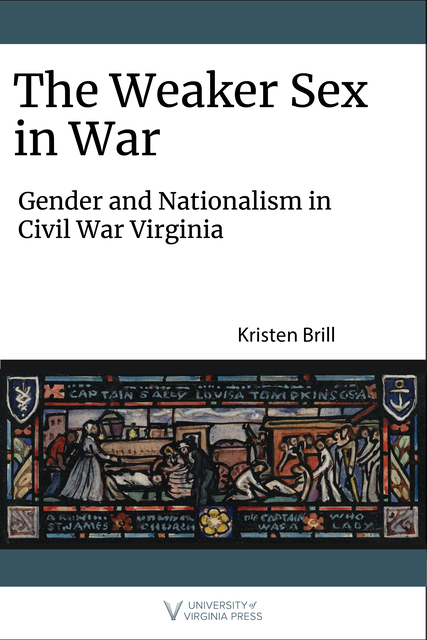The Weaker Sex in War
Gender and Nationalism in Civil War Virginia
Kristen Brill's The Weaker Sex in War puts social history into dialogue with political and intellectual history to explore the triangulated relationship between gender, politics, and nationalism in Civil War Virginia to complicate current understandings of the roles of women on the Confederate home front. Through a series of case studies in which she examines anew well known episodes such as the Richmond Bread Riots or analyzes the activities of organizations such as the Mount Vernon Ladies’ Association, Brill highlights a pivotal transitional moment in southern women’s relationship to the state, exposing a dynamic that differed markedly from how northern women—who advocated for suffrage—approached the same question. Brill deftly analyzes the conservative impulses that pushed slave-owning white women into a new relationship with their government and exposes the ways in which women consciously marshaled traditional understandings of their roles, such as being in need of defense, to expand their sphere of influence. Her manuscript thereby complements recent scholarship on the social and economic power of this demographic (most famously Stephanie Jones-Rogers’ searing account of southern women as slaveholders) and adds an overt political dimension, focused on the gendered aspects of state building, to the conversation.
Open-access publication of The American Revolution and the Hapsburg Monarchy has been enabled by funding from SHMP, the Sustainable History Monograph Pilot, with the generous support of the Andrew W. Mellon Foundation.
Table of Contents
Metadata
- isbn9780813948980
- publisherUniversity of Virginia Press
- publisher placeCharlottesville and London
- rights holderThe Rector and Visitors of the University of Virginia
- series titleA Nation Divided
- doi
We use cookies to analyze our traffic. Please decide if you are willing to accept cookies from our website. You can change this setting anytime in Privacy Settings.


